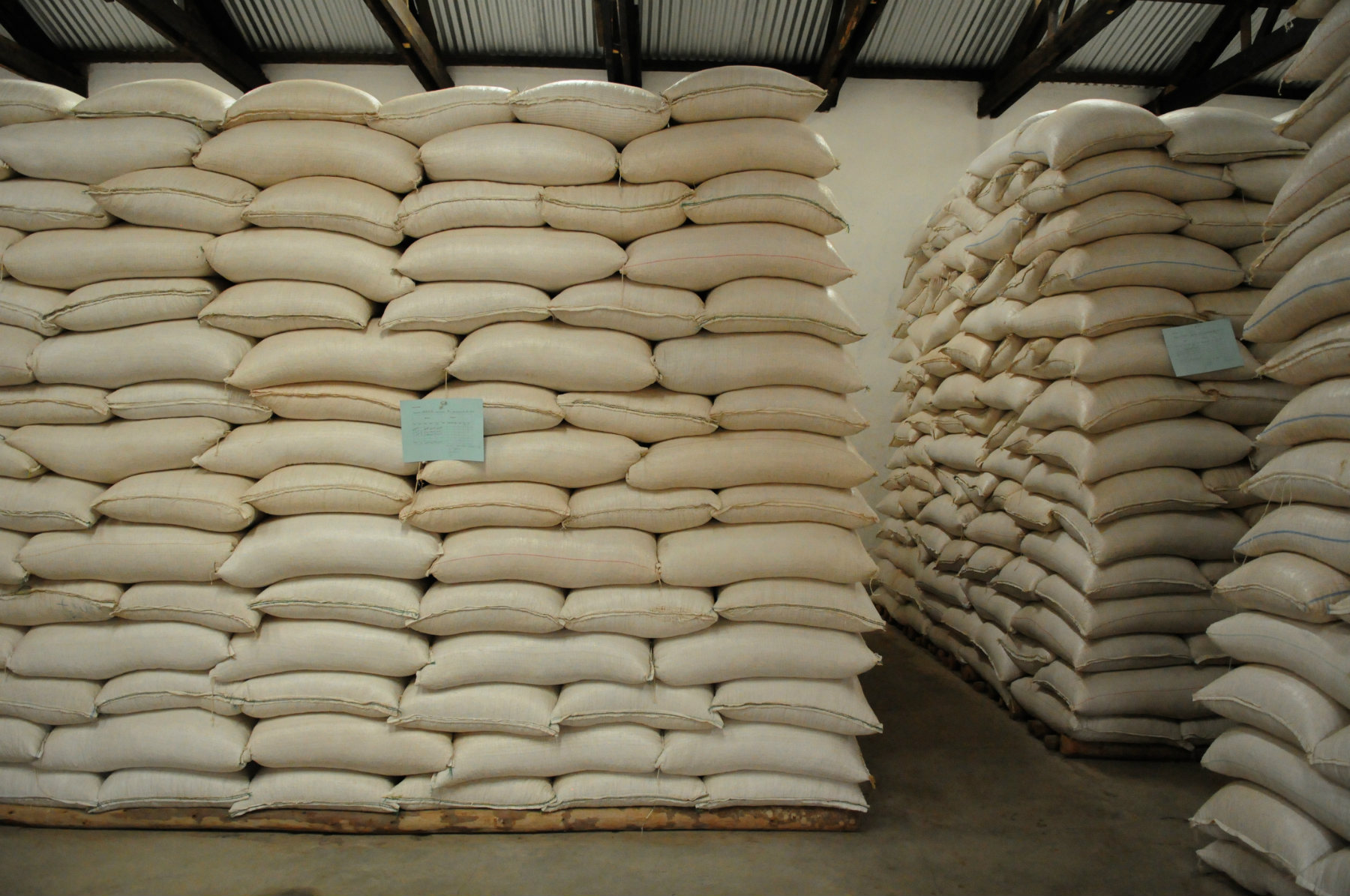Warehouse receipts traded on commodity exchange improve lives of Malawi farmers
The Common Fund for Commodities has supported the development of warehouse receipts systems across Africa in the past 15 years. The case of Malawi illustrates the benefits which warehouse receipts create for all participants, especially to individual farmers.
With the assistance from the project CFC/FIGG/38FA rural warehouses in Malawi can now particiate in the system of warehouse receipts which are accepted by Agricultural Commodities Exchange for delivery.
A registered warehouse is inspected and implements agreed standards of storage and quality verificaiton. A warehouse receipt issued under the system can be traded on the electronic platform of ACE which takes grain trading to a new level of efficiency and transparency in Malawi.
The experience of Malawi is now being examined and compared with the experience of other African countries implementing warehouse receipts.
Farmer Story
As a farmer, all George Notisi wants is assurance that his produce will not only find market but also that the price will be enough to cater for the cost of production.
Notisi has grown maize for more than ten years. He cultivates a 14 hectare land and yields at least 400 bags as well as losing a quarter of the yield to post harvest effects.
As a smallholder farmer, Notisi joins the country’s 3.5 million farmers who have to deal with post harvest losses every year. Statistics show that the country loses at least 30 percent grain to post harvest effects.
"I lose a big chunk of maize to either post harvest losses or raw deals from the traders," he said.
In Malawi, agriculture plays a vital role in the economy accounting for 85 percent of the labour force and 90 percent of foreign export earnings.
In addition, agriculture contributes 35 percent of gross domestic product (GDP) with smallholders contributing over 80 percent of Malawi’s agricultural production and maize being the major crop.
"As a smallholder farmer, the issue of markets has always been a problem. We are swindled by traders and we end up selling the maize just to clear stock."
"In the first place, we already have too much crop to sell and to make it worse, maize is grown by a lot of farmers which affects the market price. But with the coming of the warehouse receipt system, things have really improved. I have already realised K200 000 (about $667). I will use this money to buy farm inputs for next season," he said.
Warehousing
The National Smallholder Farmers Association of Malawi (Nasfam) took the initiative to establish the Agriculture Commodity Exchange for Africa (ACE) in 2005 in an attempt to create better market access for their farmers.
Over the years among other projects ACE has carried out is the Warehouse Receipt System and one of the districts which is treading a milestone in this is Dowa. Currently the warehouse receipt system is being funded by the Common Fund for Commodities (CFC) and the European Union (EU).
Though its inception was slow, Kafulu in Dowa has one of the largest numbers of smallholder farmers coming to deposit their maize -with the highest bidder being Notisi, with over 300 bags, translating to over 15 tonnes.
The chief executive officer for Nasfam and also the chairperson of the ACE trust, Dyborn Chibonga says the warehouse receipt system is not only good because it provides the farmer with immediate finance but also a market.
"A warehouse receipt is an instrument that secures performance. A buyer can get commodities on a warehouse receipt and be 100 percent certain that the right quality and quantity will be delivered.
"It is also these assurances that enable a receipt owner to access finance using the commodity as collateral," he said.
Chibonga further called for collective efforts in scaling up the warehouse receipt system so that it should bring a positive impact in agricultural marketing and rural development.
"Farmers organisations need to implement activities linking their farmers to warehouse receipt storage. In this way more farmers will be reached, hence increase growth," he added.
According to the principal adviser of ACE, Kristian Moller, the minimum being accepted is 100 bags.
Increased profitability
"We have warehouses in Nathenje, Balaka and Kafulu and of late we have now registered six more storage sites which are being operated by Farmer’s World, Grain Securities Limited, RAB Processors, KU Distributors and Transglobe totalling a capacity of 70 000 metric tonnes.
"This is a good initiative as farmers from across the country can deposit their maize. By using the receipt a farmer can only access 70 percent of the maize in storage while maintaining ownership of the grain. If he so wishes, he can withdraw his produce at any time but he must first clear the debt," he said.
Kafulu Warehouse in Dowa has attracted the interest of farmers.
The centre was opened three months ago but the warehouse manager, Felix Funsani, said farmers are flocking to deposit their maize on a daily basis.
According to Funsani at least ten smallholder farmers deposit their maize in a day.
"We are running short of space due to the influx of smallholder farmers depositing their maize. The good thing about this is that, if a farmer has less the amount we are asking them to combine with their fellow farmers so that they can meet our target," he said.
Farmers Union of Malawi’s Felix Jumbe, said: "The development is very good because the challenge smallholder farmers had was markets and the warehouse receipt system is able to do that. A smallholder farmer can access finance to buy more commodities and with the increased liquidity hence increase profitability."
(c) "The Nation" source
The project is co-funded by the European Union

